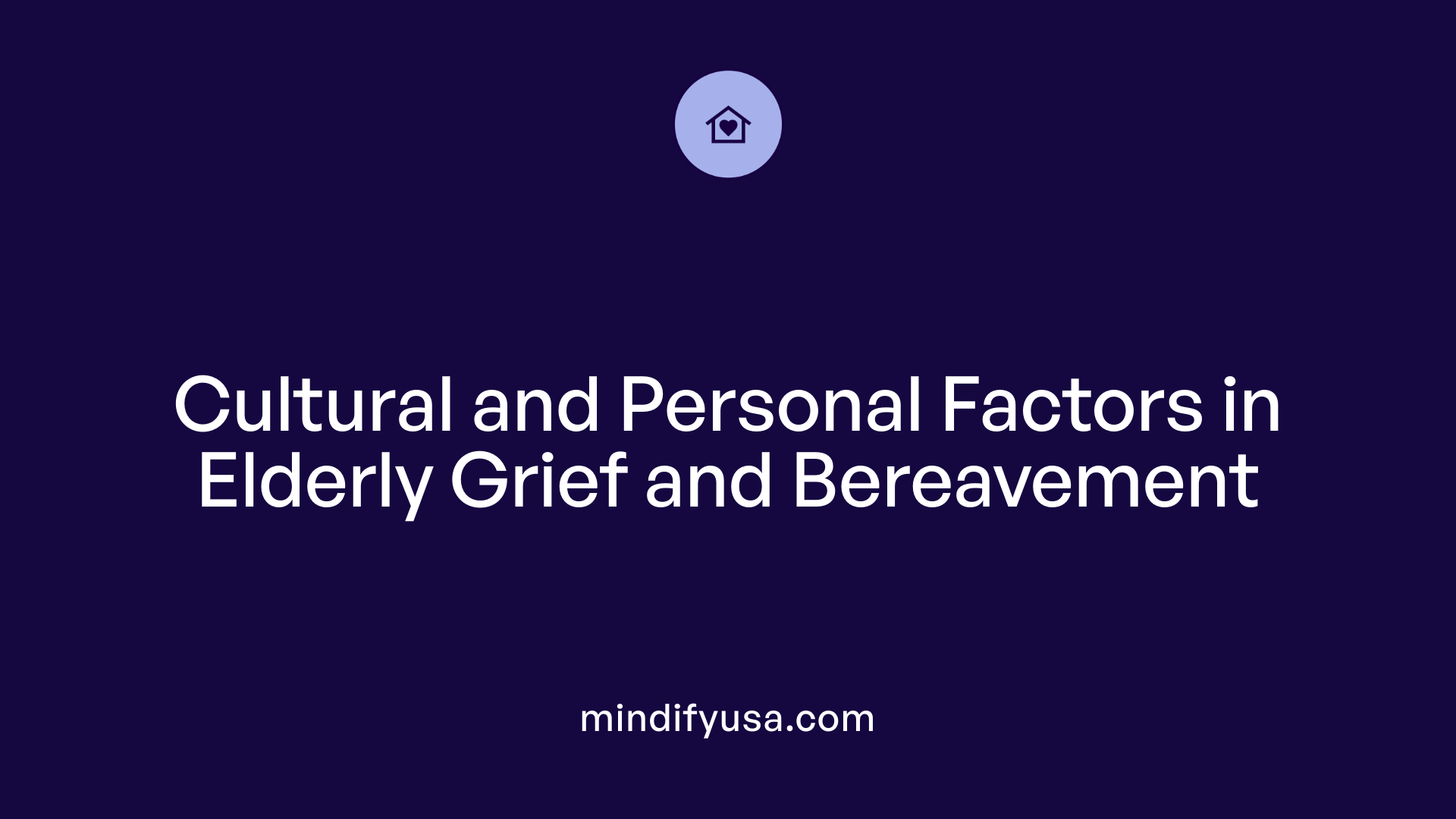Understanding and Addressing Grief in Elderly Residents
Grief and bereavement are universal experiences that profoundly impact elderly residents in assisted living environments. Recognizing the complexities of these emotional responses and implementing effective therapeutic and community strategies are essential for promoting mental health, emotional well-being, and quality of life among seniors navigating loss.
The Nature of Grief and Bereavement in Elderly Residents

What is grief and bereavement?
Grief is the emotional response to experiencing an irreversible loss, such as the death of a loved one or a significant change in life circumstances. It involves a complex set of feelings like sadness, anger, guilt, and sometimes relief, depending on the context. Bereavement, on the other hand, is the ongoing process of living with this grief. It encompasses the ways individuals adapt and find ways to cope with their loss over time.
How do individual differences affect grief?
People experience and process grief differently, influenced by personality, life experiences, cultural background, and support systems. Some may grieve openly and express their feelings freely, while others may internalize their pain. The duration and intensity of grief reactions vary widely, making personalized care essential.
The impact of multiple losses on seniors
Many seniors face multiple losses throughout their lives, including declining health, independence, home, pets, and loved ones. These accumulative losses can intensify grief, complicate emotional healing, and result in feelings of helplessness or despair. In senior living environments, understanding this layered grief is crucial for providing appropriate support.
Fostering a Compassionate and Person-Centered Approach to Bereavement Support
Supporting residents through grief and bereavement in assisted living requires a comprehensive, empathetic, and person-centered approach. Integrating therapeutic interventions, community activities, and staff education ensures that emotional, physical, and spiritual needs are addressed effectively. Promoting open communication, remembrance, and social connections can significantly enhance residents’ resilience and facilitate meaningful healing. Likewise, fostering an organizational culture that recognizes grief as a natural part of aging and provides flexible policies and ongoing support can mitigate long-term negative health outcomes. By prioritizing compassionate care and community engagement, assisted living facilities can create an environment where residents feel valued, understood, and supported as they navigate the complex journey of grief.
References
- A GRIEF & BEREAVEMENT GUIDE FOR NURSING HOMES
- Navigating Grief Together as a Community
- Tackling Grief and Bereavement in Nursing Homes
- Grief Counseling: Support Strategies for Seniors Coping ...
- Grief After Patient Death: Direct Care Staff in Nursing ...
- Grief Therapy for Seniors: Finding Support During Difficult Times
- Review of Grief Therapies for Older Adults - PMC
- 10 Grief Counseling Therapy Techniques & Interventions





































































































